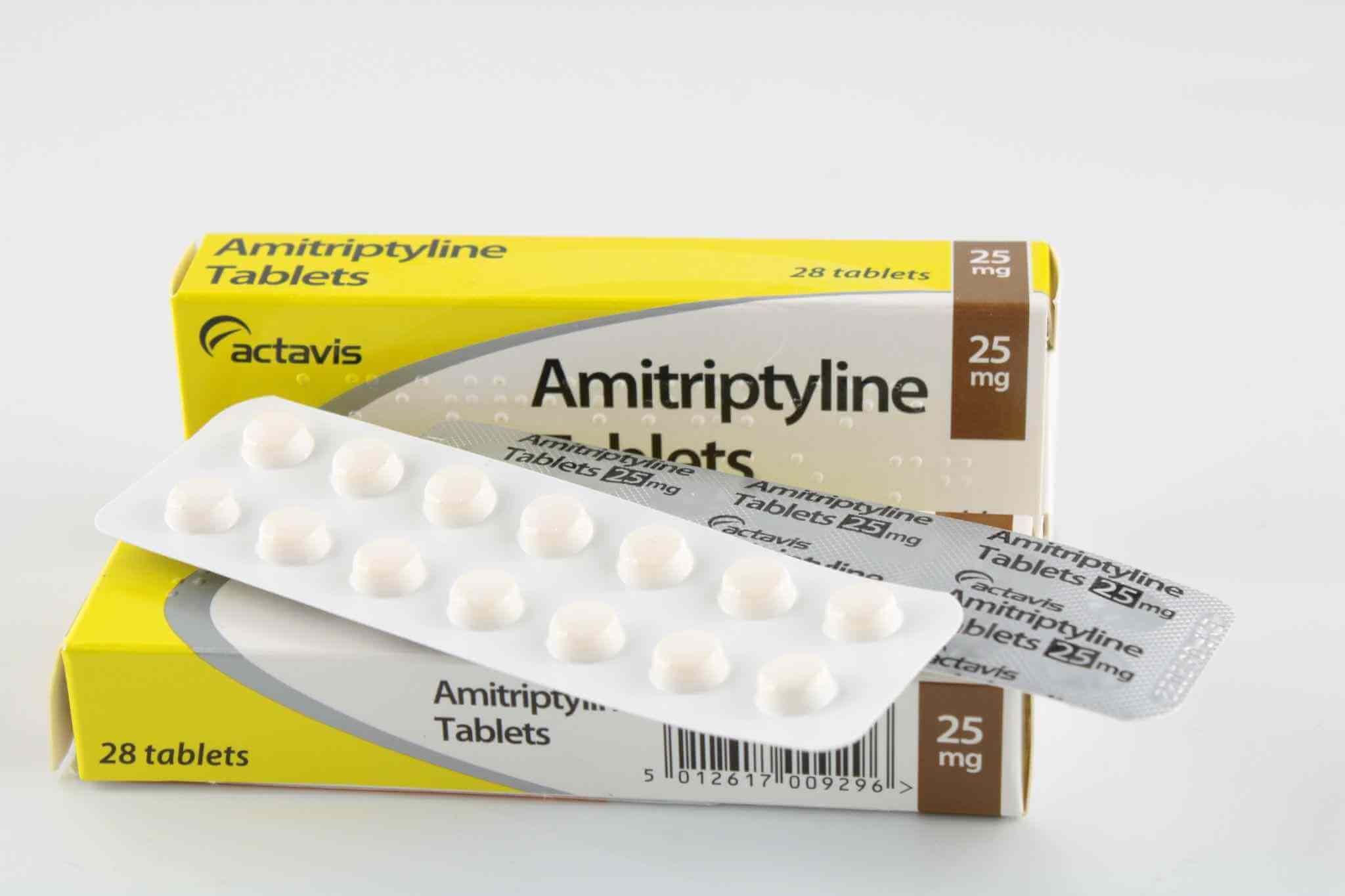Highlights
- Tricyclic antidepressants (TCAs) are a type of antidepressant that targets serotonin and norepinephrine in the brain.
- TCAs are among the first antidepressants created.
- Compared to other antidepressants, TCAs may create more side effects, some of which could be serious or life-threatening.
- All antidepressants, including TCAs, may increase the risk of suicide in children, teens, and young adults.
- TCAs can treat other conditions, including migraine prevention, bed-wetting, anxiety, panic attacks, PTSD, and neuropathic pain.
Tricyclic antidepressants (TCAs) are a type of antidepressant that targets specific neurotransmitters in the brain. With depression affecting 280 million people worldwide, medications like TCAs may provide much-needed relief and offer the ability to live a normal life. This guide to tricyclic antidepressants sheds light on how these medications work, their uses, potential side effects, and other information so you can make an informed decision for your health.
Antidepressants, including TCAs, carry a potential risk of increased suicidal thinking and behaviors in children, teens, and young adults. This risk, while not affecting everyone, is serious and requires careful discussion with your doctor.
Read on to learn more about TCAs.
What Are Tricyclic Antidepressants (TCAs)?
Tricyclic antidepressants are a class of antidepressants that work to improve mood and alleviate depressive symptoms. TCAs primarily treat depression, but they can also be used to treat other conditions, such as:
- Major depressive disorder (MDD)
- Chronic pain syndromes
- Fibromyalgia
- Headaches
- Insomnia
- Anxiety
- Panic attacks
- Migraines
- Post-traumatic stress disorder (PTSD)
- Bed-wetting
How Do Tricyclic Antidepressants Work?
TCAs work by blocking the reuptake of serotonin and norepinephrine, two neurotransmitters responsible for mood and happiness. By inhibiting reuptake, TCAs increase the availability of these neurotransmitters in the brain.
Increasing the concentration of serotonin and norepinephrine improves the transmission of these neurotransmitters. It’s this enhanced signaling that alleviates depressive symptoms and regulates mood.
TCAs may also interact with other receptors in the brain and body, such as histamine receptors, muscarinic acetylcholine receptors, and alpha-adrenergic receptors. These interactions can cause various side effects, such as sedation, dry mouth, constipation, and blurred vision. TCAs are known for having more side effects than other antidepressants.
Tertiary Amine TCAs
Tertiary TCAs are the first generation of this drug class. They balance serotonin and norepinephrine reuptake in the brain. However, these TCAs had adverse effects related to their anticholinergic activity.
They also have a unique chemical structure, which contains a tertiary amine group. This structure affects their side effect profile and metabolic pathways. Tertiary TCAs have a stronger effect on blocking reuptake, but they also tend to have more side effects.

Examples of tertiary amine TCAs include:
- Amitriptyline (Elavil®, Vanatrip®)
- Doxepin (Silenor®, Sinequan®)
- Imipramine (Tofranil®)
- Trimipramine (Surmontil®)
- Clomipramine (Anafranil®)
Warnings and Contraindications — Tertiary Amine TCAs
Individuals should review all warnings and contraindications before taking any medication, including TCAs.
TCAs can increase the risk of suicidal thinking and behavior in children, teens, and young adults. For this reason, the decision to use these medications in younger populations must be made with caution. TCAs are typically not the first choice for treating depression in these age groups due to their side effect profile and overdose risk.
Individuals in the following groups should not take TCAs:
- Anyone taking an MAOI or has stopped taking an MAOI within 14 days
- People taking other medications that may increase serotonin levels
- Those with narrow-angle glaucoma
- Anyone who is pregnant or breastfeeding
- Individuals recovering from a myocardial infarction
TCAs should be used with caution by people with urinary issues, as some TCAs may cause or increase urinary retention.
Tertiary amine TCAs may also increase the risk of seizures by lowering the seizure threshold.
In some cases, individuals may feel their depression worsen when taking tertiary amine TCAs.
For a complete list of warnings and contraindications, refer to your medication’s label and discuss any concerns with your doctor.
Side Effects — Tertiary Amine TCAs
Tertiary amine TCAs may lead to side effects, some of which may require immediate medical attention.
In general, side effects may include the following:
Common Side Effects
- Dry mouth
- Blurred vision
- Constipation
- Urinary retention
- Drowsiness
- Weight gain
- Sexual dysfunction
Less Common Side Effects
- Dizziness
- Lightheadedness
- Tremors
- Fatigue
- Weakness
- Increased heart rate
- Nausea
- Vomiting
- Headache
- Confusion
Serious Side Effects
- Hyperthermia
- Hypotension
- Cardiac complications, such as prolonged QT interval or arrhythmia
- Hallucinations
- Serotonin syndrome
- Seizures
Seek immediate medical attention if you experience signs of any of the following:
- Suicidal thoughts or behaviors
- Allergic reactions
- Severe dizziness or fainting
- Chest pains
- Difficulty breathing
- Serotonin syndrome
- Seizures
It’s important to note this list is not exhaustive and different individuals may react differently to their medications. Some side effects may occur more frequently or severely depending on factors such as the specific medication, dosage, and interactions with other medications. Be sure to discuss any new or unusual symptoms with your doctor.
Drug Interactions — Tertiary Amine TCAs

Drugs in this class can interact with a wide range of other medications, including:
- Monoamine oxidase inhibitors (MAOIs). Combining TCAs with MAOIs (e.g., isocarboxazid, phenelzine, tranylcypromine) can lead to dangerously high serotonin levels, resulting in a life-threatening condition called serotonin syndrome. There must be a significant washout period (usually 14 days) when switching between these drug classes.
- Serotonergic drugs. Taking TCAs with other medications that increase serotonin (e.g., SSRIs, SNRIs, tramadol, certain migraine medications) can also increase the risk of serotonin syndrome.
- Drugs affecting the heart’s rhythm (QT prolongation). Certain medications can affect the heart’s electrical activity, including some antiarrhythmics, antibiotics, and antifungals. TCAs themselves can slightly prolong the QT interval, so combining them with other drugs having this effect increases the risk of dangerous heart arrhythmias.
- Anticholinergic drugs. TCAs have anticholinergic effects, meaning they block the action of a neurotransmitter called acetylcholine. Using them with other anticholinergic drugs (e.g., some antihistamines, bladder medications) can intensify side effects like dry mouth, blurred vision, constipation, and urinary retention.
- Central nervous system (CNS) depressants. TCAs can cause sedation. Taking them with other drugs that depress the central nervous system (e.g., alcohol, benzodiazepines, opioids) can lead to increased drowsiness, impaired coordination, and slowed breathing.
- Blood thinners. TCAs can interact with blood thinners like warfarin, potentially altering their effectiveness and increasing bleeding risk.
- Blood pressure medications. TCAs can affect blood pressure and might interfere with the action of some blood pressure medications.
- Drugs metabolized by CYP2D6. Many TCAs are broken down by the liver enzyme CYP2D6. Medications that inhibit or induce this enzyme can dramatically alter TCA levels in the body.
Refer to the Drugs.com Drug Interaction Checker for the complete list of potential interactions for your specific medication and discuss them with your doctor.
Secondary Amine TCAs
Secondary amine tricyclic antidepressants work similarly to tertiary amine TCAs, but they may have a less severe side effect profile than tertiary amine TCAs.

Examples of secondary amine TCAs include:
- Desipramine (Norpramin®)
- Nortriptyline (Aventyl®, Pamelor®)
- Protriptyline (Vivactil®)
Warnings and Contraindications — Secondary Amine TCAs
Like tertiary amine TCAs, secondary amine TCAs may increase the risk of suicidal thinking and behaviors in children, teens, and young adults. For this reason, TCAs are rarely the first choice for treating depression in these age groups.
Secondary amine TCAs share similar warnings and contraindications as tertiary amine TCAs.
In addition, individuals should use secondary amine TCAs with extreme caution if any of the following apply:
- A family history of sudden death, cardiac dysrhythmias, or other cardiac-related events
- Thyroid disease or are taking thyroid medication
- Cardiovascular disease
- Excessive use of alcohol
Talk to your doctor about precautions for your specific medication.
Side Effects — Secondary Amine TCAs

The side effect profile for secondary amine TCAs can be milder than tertiary amine TCAs, but this can vary depending on specific medications, dosages, and the individual.
In general, the following side effects may occur:
Common Side Effects
- Dry mouth
- Blurred vision
- Constipation
- Weight gain
- Tiredness
- Increased sweating
- Sexual dysfunction
Less Common Side Effects
- Dizziness
- Lightheadedness
- Tremors
- Fatigue
- Weakness
- Increased heart rate
- Nausea
- Vomiting
- Headache
- Cognitive impairment
- Restlessness
Serious Side Effects
- Cardiac toxicity
- Seizures
- Hallucinations
- Serotonin syndrome
- Allergic reactions
- Hyponatremia
Seek immediate medical attention if you experience signs of any of the following:
- Suicidal thoughts or behaviors
- Allergic reactions
- Severe dizziness or fainting
- Chest pains
- Difficulty breathing
- Serotonin syndrome
- Seizures
Individuals may experience side effects not listed here. If you experience any new or unusual symptoms while taking secondary amine TCAs, contact your healthcare provider promptly for guidance and possible adjustment of your treatment plan.
Drug Interactions — Secondary Amine TCAs
Secondary amine TCAs may interact with other drugs, including but not limited to:
- Monoamine oxidase inhibitors (MAOIs). The risk of serotonin syndrome is the same as for tertiary TCAs. Don’t start taking any TCA within 14 days of taking an MAOI.
- Serotonergic drugs. The potential for serotonin syndrome remains when combining secondary amine TCAs with SSRIs, SNRIs, and other drugs that increase serotonin levels.
- Drugs affecting the heart’s rhythm (QT prolongation). Similar to tertiary TCAs, secondary amine TCAs carry a small risk of prolonging the QT interval on the heart’s rhythm. Combining them with other medications that have this effect (certain antiarrhythmics, antibiotics, etc.) increases the risk of dangerous arrhythmias.
- Central nervous system (CNS) depressants. Secondary amine TCAs have less sedative effect than tertiary amines, but the combination with CNS depressants (alcohol, benzodiazepines, opioids) can still lead to increased drowsiness, impaired coordination, and slowed breathing.
- Blood pressure medications. Secondary amine TCAs have a greater effect on norepinephrine than tertiary amines, potentially leading to interactions with certain blood pressure medications. Discuss this thoroughly with your doctor.
- Drugs metabolized by CYP2D6. Similar to tertiary amines, secondary amine TCAs are metabolized by the CYP2D6 enzyme in the liver. Drugs that affect this enzyme can alter the levels of your TCA medication.
Review Drugs.com’s Drug Interaction Checker for the complete list of interactions for your specific medication and discuss them with your doctor. And always report new or unusual symptoms to your provider as well.
Balancing Risk vs. Reward with Tricyclic Antidepressants
TCAs may provide relief from depressive symptoms and other conditions, but their side effects and drug interactions might make another antidepressant a better choice for you. Consult with your doctor regarding all your options to treat depression or related conditions.
Get the Lowest Price for Your Antidepressant Medications
Once you have a prescription, your next priority is to find it at an affordable price. BidRx makes it easy to get all of your prescriptions at the best price. Create your account, post your prescription, and let pharmacies send you their best offers.
Find your depression medication and place your bid today!
This information is intended for general informational purposes only. It is not a substitute for professional medical advice, diagnosis, or treatment. Always seek the advice of your physician or other qualified health provider with any questions you may have regarding a medical condition or medication.
